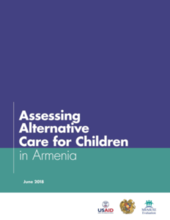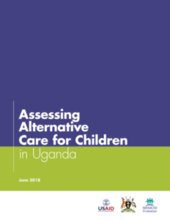Displaying 621 - 630 of 1465
This article reviews Australia's national redress scheme proposed by the Royal Commission into Institutional Responses to Child Sexual Abuse and proposes two corrective measures: adopting an inclusive understanding of sexual abuse in closed and open settings, and addressing the negative bias that may result from care leavers’ lower social status as children compared to that of non-care leavers.
This volume offers glimpses of extended family care as well as residential child and youth care in 25 countries never gathered together before in one collection.
In this study, the authors interviewed 46 professionals who had contact with young people in residential care settings in New South Wales, Australia about their perceptions of the link between residential care and contact with the criminal justice system.
This report, in the Moldovan langauge, presents the findings of an assessment workshop aimed at informing action planning to address priority needs identified in alternative care for children in Moldova.
In this study, the authors sought to identify sleep habits and suspected sleep disorders among abused children and adolescents admitted to residential care facilities in Japan and to investigate their association with emotional and behavioral problems.
This report presents the findings of an assessment workshop aimed at informing action planning to address priority needs identified in alternative care for children in Moldova.
This report presents the findings of an assessment workshop aimed at bringing together key stakeholders—decision makers, policy developers, service providers, civil society representatives, and donors—to assess and identify the main care reform areas in Armenia in which action is needed.
This paper explores what happens to children separated from their families at the U.S. border with Mexico by examining the nature of the services and programs provided while they are in temporary foster care.
This report presents the findings from an assessment workshop aimed at informing action planning to address high-priority needs identified in alternative care for children in Uganda.
This report presents the findings of an assessment workshop aimed at informing action planning to address priority needs identified in alternative care for children.






